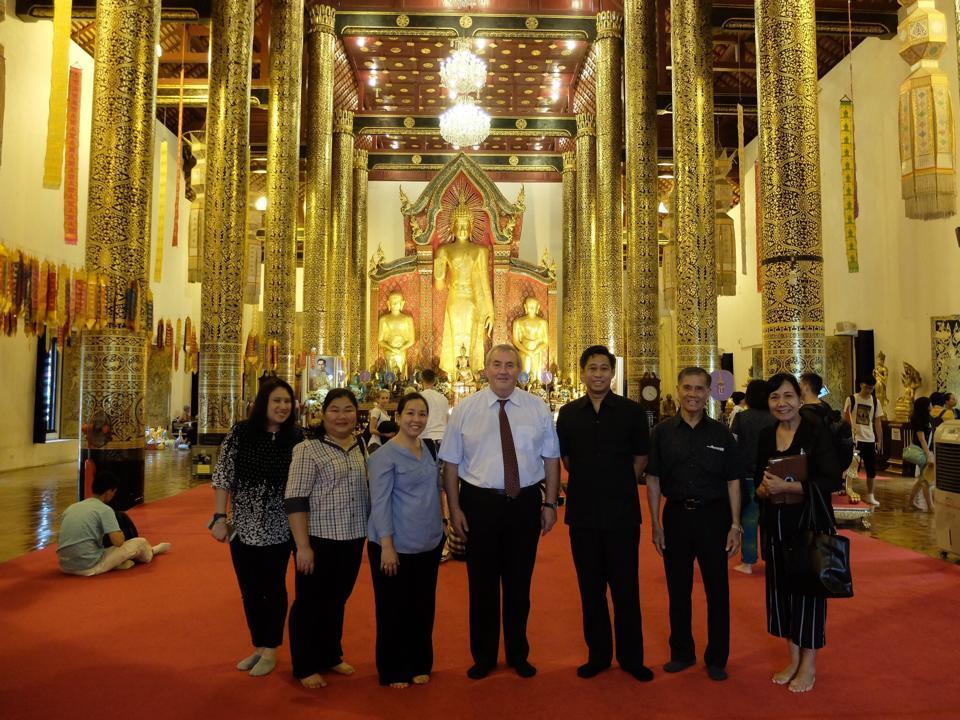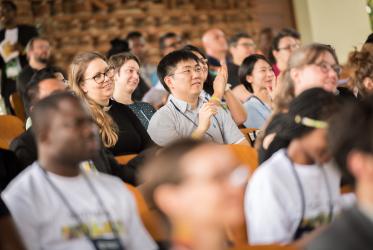The Christian Conference of Asia (CCA), on 11-12 July, held an international consultation on “Towards Revitalising the Ecumenical Movement in Asia.” The gathering of 60 church and ecumenical leaders was organised by the CCA at its headquarters in Chiang Mai, Thailand as a prelude to its Diamond Jubilee celebration.
Fr Prof. Dr Ioan Sauca attended and offered reflections on behalf of the World Council of Churches (WCC). “Ecumenism is a journey that God has called us to undertake in doing his will for the final purpose he has for the world,” said Sauca, who is WCC deputy general secretary and director of the WCC Ecumenical Institute at Bossey.
“The main purpose and goal of our common journey thus remains the search for unity – in order that the world may believe in the view of the unity of the whole cosmos as the reason and final goal of eschatological expectation.”
He also placed a strong emphasis on nurturing ecumenical formation as a priority of the churches. “Unless we listen to our children, we cannot hope to move the ecumenical movement forward,” he added.
Sauca also met with Bossey alumni in Thailand, hearing firsthand about the impact their Bossey studies have had on their ministries in local churches. He will also meet this week with representatives of WCC member churches in Thailand.
At the CCA consultation, CCA general secretary Dr. Mathews George Chunkara, a former WCC staff member, said churches and ecumenical councils in Asia must constantly engage in dialogue with each other and ensure a renewed commitment, as well as a shared vision in order to revitalise the Asian ecumenical movement.
“What we experience today in Asia is a lack of coherence and coordination within the ecumenical movement,” he said. “In a continent where the number of Christians is profoundly small, division makes Christian witness still more difficult, less effective and more fragmented.”
Rev. Rex R.B. Reyes, Jr said also offered reflections on peacebuilding, sharing his experiences of the Philippines peace process and the churches’ contributions towards peacebuilding.
As general secretary of the National Council of Churches in the Philippines, he said, “The systems and powers of the world come together to regularly plan how they can remain dominant, while the people of the Philippines continue to suffer and long for peace.”
Speaking on the shifting policies in the Korean Peninsula, the general secretary of the Presbyterian Church in the Republic of Korea, Rev. Dr Jae Chron Lee said, “As the people are gradually coming together in support of the Korean unification, the perspective of the South Korean government is also changing. However, the issue of how we can reconcile different approaches towards peacebuilding still remains an important factor.”
Associate general secretary of the Communion Churches in Indonesia Rev. Krise Anki Gosal spoke on religious freedoms in Indonesia.
“The changing perceptions of preferential treatment to certain religions, especially the attitude of the Indonesian government, is a major concern for religious minorities in the country,” said Gosal. “Indonesian churches have developed interreligious programmes to respond to discrimination based on ethnicity and religion.”






